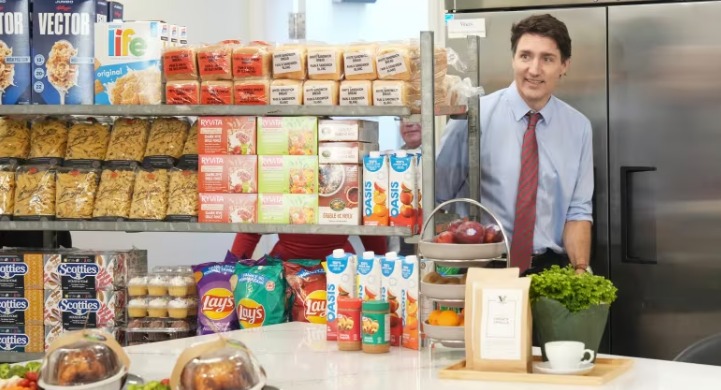Trudeau Government to Send $250 Cheques to Most People, Slash GST on Some Goods
Prime Minister Justin Trudeau announced a series of new measures on Thursday aimed at alleviating affordability pressures that Canadians have been facing in the post-COVID era. Key among these initiatives is a two-month GST holiday on certain goods and services, along with $250 cheques for eligible Canadians.
Key Announcements
The Liberal government will distribute $250 cheques to an estimated 18.7 million Canadians who worked in 2023 and earned $150,000 or less. These payments, referred to as the “Working Canadians Rebate,” are expected to be distributed in “early spring 2025.”
The GST/HST holiday will commence on December 14 and run through February 15, 2025. During this period, a variety of goods will be exempt from the GST, including:
- Prepared foods (vegetable trays, pre-made meals, salads, sandwiches)
- Restaurant meals (dine-in, takeout, or delivery)
- Snacks (chips, candy, granola bars)
- Alcoholic beverages (beer, wine, cider, and pre-mixed drinks below 7% ABV)
- Children’s clothing, footwear, car seats, and diapers
- Children’s toys (board games, dolls, video game consoles)
- Books, print newspapers, and puzzles
- Christmas trees
Trudeau stated, “For two months, Canadians are going to get a real break on everything they do,” adding that while the government can’t control prices at the checkout, it can help put more money into people’s pockets.
Financial Implications
Families spending approximately $2,000 on eligible goods during the GST holiday can expect to save around $100. In provinces with the Harmonized Sales Tax (HST), such as Ontario and Nova Scotia, the savings could be even greater—estimated at $260 for the same purchase amount.
These measures will come at a significant cost to the federal government, with the GST holiday projected to result in $1.6 billion in lost revenue and the cheque distribution costing about $4.68 billion.
Political Context
This announcement comes as the Liberal government faces declining popularity, with recent polls showing them trailing the Conservative Party by approximately 17 percentage points. The renewed focus on cost-of-living issues is seen as an attempt to regain support from Canadians who have been feeling the economic pinch.
However, there are concerns that these measures could inadvertently fuel inflation, which has recently stabilized at the Bank of Canada’s target rate of 2%. Economists have noted that previous government stimulus during the pandemic contributed to rising inflation levels as consumers spent more.
Trudeau defended the initiative, asserting that it would not stimulate inflation. Finance Minister Chrystia Freeland also downplayed inflation fears, citing the Bank of Canada’s successful rate hikes as a stabilizing factor.
Opposition Responses
Conservative Leader Pierre Poilievre criticized the temporary tax relief as a “trick,” arguing that it does not address the underlying issues of rising costs, particularly with a permanent carbon tax expected to increase in the spring. He claimed that housing costs and food bank reliance have soared under Trudeau’s leadership.
In contrast, NDP Leader Jagmeet Singh expressed support for the affordability measures, stating his party would work to expedite their passage in Parliament. Singh highlighted the need for further action, advocating for the permanent elimination of GST on essential items such as groceries and home heating.
Conclusion
The Trudeau government’s announcement of a GST holiday and targeted financial support reflects an effort to respond to the economic challenges facing Canadians. While the measures aim to provide immediate relief, their long-term effectiveness and impact on inflation remain to be seen. As the holiday season approaches, the political landscape will be closely monitored, with implications for future elections and government policies.
